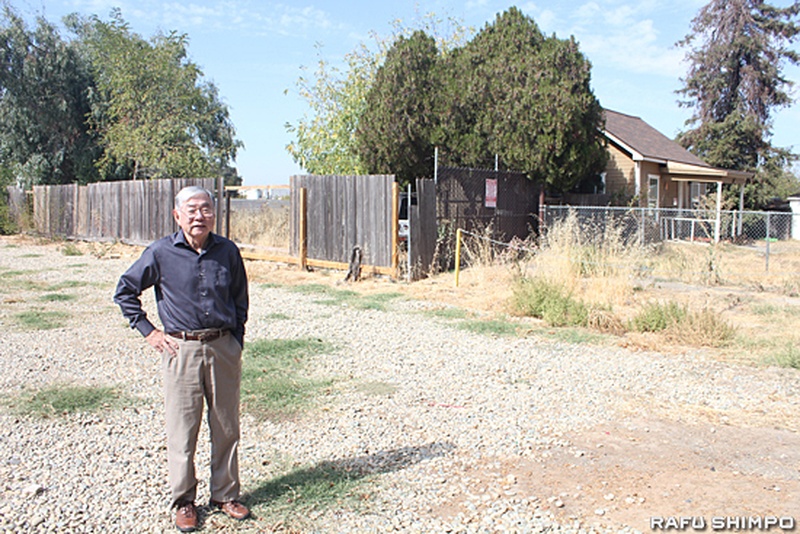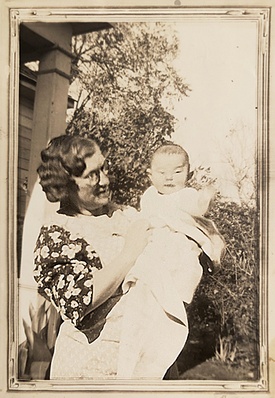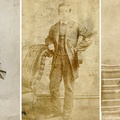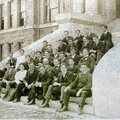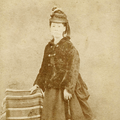Mary McCumber: The Neighbor Who Saved Her Home
Lester Ouchida, a third-generation Japanese-American living in Florin, was one of the people who was helped by non-Japanese Americans during the war.
During the war, the Ouchida family was sent to an internment camp, but thanks to their neighbors who looked after their house, it was left untouched when they returned, and they were able to resume their normal lives.
"We were blessed with good neighbors and we didn't lose our home. Mary McCumber saved us."
Even before they were sent to the internment camps, the Ouchida family and their neighbors, Mac and Mary McCumber, were very close friends. Mary, in particular, would come over to Ouchida's house every night and enjoy spending time with him.
"After dinner, Mary would come over to our house and make us a dessert of leftover rice, sugar and cream."
In contrast to the sociable Mary, who came to the Ouchida family's home every night, her husband Mac was a very nice but quiet person and never came to visit their neighbors' houses.
However, he did visit once. It was the night before the family was sent to a concentration camp. Mak came to Ouchida's house and told him:
"If you need anything please write me anytime."
"He was a very quiet man who didn't say much, but you could tell he cared about our family and was genuinely worried about our future."
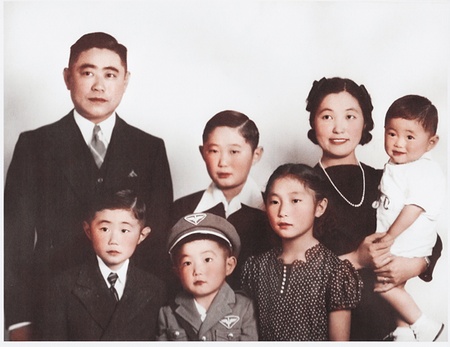
At the age of five, Ouchida was sent to a concentration camp.
Fortunately, Ouchida was not yet old enough to feel any hardship during the three and a half years he spent in the internment camp. His older brother, who was a high school student at the time, had a hard time adjusting to life there, even not liking the food there.
During the more than three years they were imprisoned, Mary rented out the Ouchida family's house to a local pastor and sent all the rental income to Ouchida's father, who was in a concentration camp, every month. She also worried about the family and occasionally wrote them letters.
Mary said that when non-Japanese Americans said bad things about Japanese residents, she would respond by saying:
"Much better than white trash!"
The former Japanese town: The transformation of Florin
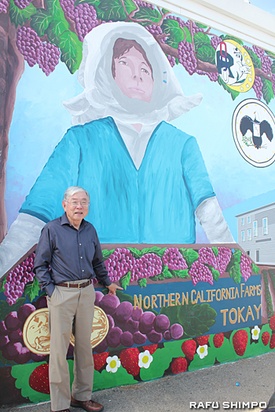
Before the war, about 250 Japanese households lived in Florin. Many of them were farmers growing strawberries, grapes, etc. Ouchida's father, Harold, ran a successful business distributing strawberries and other agricultural products harvested in Florin to various places.
Following President Roosevelt's executive order, Harold, his wife Edith, and their five children, including Lester, were interned at the Jerome internment camp in October 1942. When Jerome was closed in June 1944, the family was interned at the Gila River internment camp in Arizona, before returning to Florence in August 1945.
"I was eight and a half years old when I left the camp. I still remember when I got on a Greyhound and arrived in Florence, and the woman I was riding with started crying." He must have been overwhelmed with emotion at finally being able to go home.
However, Japanese residents continued to face hardships even after the disaster.
"Thanks to Mary, our homes remained intact. There were many Japanese residents who returned to find their homes damaged."
At that time, there was prejudice against Japanese residents. "My older brother said that when he entered El Grove High School, the discrimination was severe. He said that he didn't have a single white friend during his time at high school."
After returning from the internment camp, Lester's father, Harold, worked hard to restart the business he had run before the war. However, things were not as good as they had been before the war. "Before the war, my father owned about 20 trucks for transporting agricultural products. But after the war, he was down to just two. He was able to expand the business until he had 10 trucks, but it was by no means easy to regain the prosperity he had before the war."
Nevertheless, his father, Harold, worked hard and continued to run a successful business after the war. Around 1954, he built a new house in Florence and the family moved there.
His father, Harold, was a community leader who would rush to the scene when problems arose in the Japanese community in Florence and discuss the matter with lawyers. However, he continued to struggle with the environment surrounding Japanese people after the war, and passed away at the age of 59.
Meanwhile, after the war, Lester's mother, Edith, heard that people in Japan were poor, so she sent canned food and other items to relatives in Japan. "We could have sent it by mail, but canned goods are heavy, so it couldn't have been cheap. Even though we were struggling ourselves, we were worried about our relatives in Japan."
After the war, the Japanese residents who had lived in Florin lost their homes and left the city, dispersing to various places, including Southern California. Although the buildings that the Japanese residents used remain, the former Japanese town has disappeared.
Like a child
"Even after we returned from the internment camp, my brother and I would often visit the McCumber family and watch TV together." The friendship between the two families continued even after the war.
In fact, Ouchida's name, Lester, was taken from the name of the McCumbers' deceased son.
"When I was born, Mary asked my parents to name me after their late son." To Mary, Ouchida was the favorite of the family.
Mary passed away in the 1970s. Ouchida attended her funeral. The only people who attended were non-Japanese Americans who knew Mary. Ouchida and her sister were the only Japanese people.
However, the people there immediately realized that Ouchida was the child of a Japanese family that had been close to Mary. "Mary must have told other people about me, who she loved dearly. Everyone immediately recognized me."
Even though everyone discriminated against Japanese residents, she loved Ouchida like her own child, helped out at home, and developed a true friendship with him.
"At that time, despite the rise of anti-Japanese sentiment, there were people who stood up for us with justice and courage. We will never forget their kindness."
Editor's Note
It is not possible to mention everything here, but there were many non-Japanese Americans who helped Japanese residents during the war.
This year marks the 70th anniversary of the death of former Colorado Governor Carr. Carr may have lost the 1942 U.S. Senate election because he defended Japanese Americans. However, his achievements as a man of justice are passed down to future generations with gratitude and respect, not only from Japanese Americans but also from people living today. Doesn't this mean that his beliefs have triumphed?
With the presidential election approaching in November, immigration policy is also a hot topic. It will be interesting to see how the lessons of the past will be applied to the future.
Interview cooperation and references : Ichiro Fujisaki, former ambassador to the United States; Doug Arbour, president of the Japan-America Society of Southern California; Adam Schrager, Chairman of the Japan-America Society of Southern California; Translated by Toshiho Ikeda, "Ralph Carr, the politician who saved the Japanese-Americans" - Governor of Colorado with conviction (Suiseisha)
"The Life of Keizaburo Kouda" edited by Yusen Kawamura
Pacific Citizen Florin Historical Society Go for Broke National Education Center National Museum of American History Denver Public Library
*This article is reprinted from the Rafu Shimpo (January 3, 2020).
© 2020 Junko Yoshida / Rafu Shimpo


